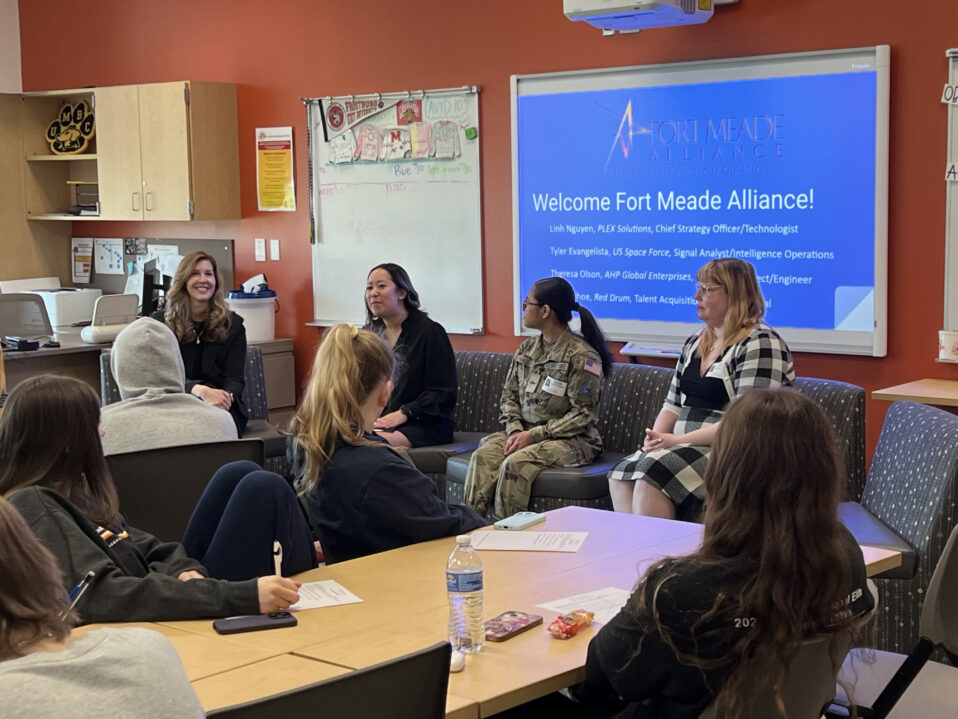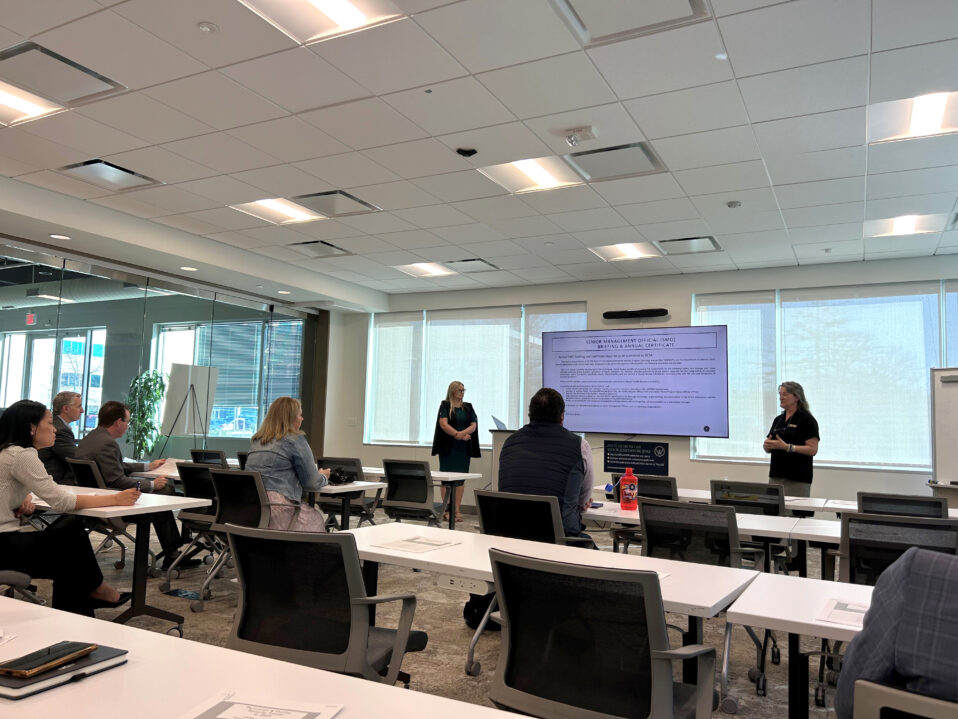 Eighteen months after completing his degree and starting work with a Fort Meade contractor, the gifted high-tech professional tendered his resignation. There weren’t any problems between the young man and his employer. But another company had offered him a raise of $65,000 and a benefits package that included a 17-percent employer contribution to his 401k.
Eighteen months after completing his degree and starting work with a Fort Meade contractor, the gifted high-tech professional tendered his resignation. There weren’t any problems between the young man and his employer. But another company had offered him a raise of $65,000 and a benefits package that included a 17-percent employer contribution to his 401k.
“It is a very, very competitive marketplace,” said Katie Casey, Talent Placement Director at CACI.
On top of the recruiting challenge created by the limited pool of technology professionals with security clearances, Fort Meade contractors also now face growing competition from employers in commercial sectors.
“Commercial companies are definitely targeting people with clearances more now because of the growing interest in big data analytics,” Casey said. And some of those companies are beginning to match the premium salaries typically paid to cleared workers.
Consequently, recruiters for Fort Meade contractors have turned to a range of innovative, diligent, even unexpected practices to attract great talent to their companies.
The online job postings and social media streams that were core recruiting tools five to 10 years ago are no longer sufficient in reaching candidates. Many sought-after professionals don’t check job boards or respond to LinkedIn messages. Some have severely curtailed their online presence to avoid recruiters’ messages and protect themselves from being targeted by malign actors.
So recruiters have turned to more creative online tools. To find job candidates for his clients (small, veteran-owned businesses), Stephen Hrutka, founder of Hrukus, uses Internet scraping tools to search for promising individuals and analyze scattered online data to determine if they have the desired skills and security clearance.
Casey employs scraping tools and e-mail extraction programs to analyze posts on GitHub and Stack Overflow to identify individuals with key skills then determine their location and e-mail address. In some cases, she has even obtaining a home address and mailed a hand-written note to emphasize her company’s interest in that person.
Oddly, in a very digital profession, personal connections have become especially important.
Realizing that good people tend to know other good people, companies have beefed up their employee referral programs and incentives.
Next Century, which was recently acquired by CACI, diligently circulated information about job openings to staff along with curated content that employees could post on their social media accounts and talking points about the company’s benefits and culture, Casey said. Employees who referred successful candidates for positions, earned significant bonuses, topping out at $12,000 for a referral that resulted in hiring an experienced, fully cleared, billable employee.

Praxis Engineering often hosts open houses or expert-led talks to recruit new hires.
At Praxis Engineering, successful referrals can also net employees bonuses and occasional, special prizes.
“Periodically, we publish a ‘top 10 most wanted skills’ list, kind of like the wild west, and have a referral competition,” said Ryan Clark, a recruiter with Praxis. “We are currently giving an iPhone to one of our employees because she made a referral of a person who got hired, so she got her pick of any smart phone she wanted.”
But the level of personal engagement with potential employees goes far beyond referrals. Praxis recruiters, managers and employees steadily work to cultivate broad professional networks through events and no-pressure interactions. The company regularly hosts open houses, happy hours and expert-led tech talks (with titles such as “Chaos Engineering: Crashing your cloud with confidence.”) The company encourages employees to come and bring a ‘cube-mate’ from a project site with them.
“It’s a chance for people to look under the hood and get a sense of what life is like at Praxis without having to bring a resume or answer interview questions or even listen to me give a sales pitch,” Clark said. Many attendees, he added, aren’t even looking for a job.
Yet that “marathon approach” to recruiting can mean that Praxis is the first company individuals think of when they decide to change jobs months or years later, he said. And because the company and individual have gotten acquainted previously, those hires tend to be very good fits.
Despite the urgency to fill positions in some contracts, patience and persistence are key to recruiting in the Fort Meade market, Hrutka said. While building his recruiting business over the past three years, Hrutka has consistently maintained an online presence, posted on job boards and staffed job fairs. Those efforts didn’t trigger intensive recruiting, but they have enabled Hrutka to foster relationships with other companies and individuals, build his credibility as a recruiter and open the door for happy events.
“Every now and again, you have a purple squirrel moment,” he said. “I’ve had skilled people with full-scope polys respond to my job postings, often when a contract turned over and their company didn’t have a new role for them.”



